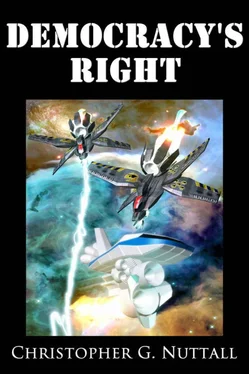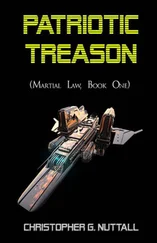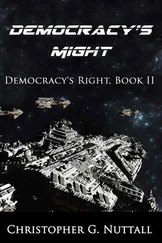He pushed the thought out of his mind as the small fleet crossed the invisible line in space marking weapons range. He’d planned to hold fire until they reached a closer range — the fortress had a powerful point defence system and it was surrounded by automated weapons platforms — but if the fortress had opened fire, he would have had to return it and use the external racks. The fortress seemed inclined to wait for him to get closer, which was odd, even though it was what he wanted. A chill ran down his spine as he contemplated the words of one of his old instructors at the Academy.
“If your battle is going according to plan,” the old man had said, two years before he’d been taken away for some political offence against the Empire, “you are about to lose. No battle plan has ever survived contact with the enemy and no battle plan ever will.”
Colin scowled, unable to suppress the feeling of imminent disaster. “Launch a second set of probes,” he ordered. The tactical officer gave him a surprised glance, but he didn’t argue, even though there was no overt reason to launch additional probes. “Prepare to engage the enemy.”
The fortress was finally coming alive, almost exactly when Colin had predicted, a compromise between range and speed. The shorter the range between shooter and target, the faster the missiles could travel… and the shorter time in which they could be intercepted. Colin watched the updating display for a long moment, checking that the fortress’s impressive salvo of missiles hadn’t been augmented somehow, before looking up at the tactical officer.
“Lock missiles on target,” he ordered. It was an unnecessary order, but Imperial Navy protocol demanded that it be issued. “Prepare to fire.”
“Missiles locked on target, sir,” the tactical officer said. His hands danced over the control systems, targeting the missiles on the massive fortress. Unlike the last fortress they’d destroyed, this one was fully aware of the danger and was prepared to meet it. Its point defence would take a heavy toll of Colin’s missiles, hence his willingness to spend lavishly in order to take out the fortress. “We are ready to attack.”
“Fire,” Colin ordered, calmly.
The superdreadnaught rocked sharply as she unleashed the first barrage from its external racks, just before tiny destruct charges separated the remains of the racks from the starship and pushed them into space. A moment later, the ship rumbled again as she unleashed the firepower of her internal tubes, the updated missile control systems taking control of both salvos and melding them together. The spread of ECM missiles, armed with jammers and decoys rather than standard nuclear warheads, followed afterwards, adding to the confusion. Depending on the skill of the enemy sensor techs on the receiving end — and the Roosevelt Family could hire the best, if they were so inclined — they might have problems separating out the real missiles from the decoys. Their screens would be showing over a million missiles bearing down on them.
Colin’s lips twitched, without humour. If he could have fired a million missiles in a single salvo, he wouldn’t have had to worry about Admiral Percival or the defences of Camelot. He could have waltzed into orbit, destroyed the defences with a single overpowering salvo and accepted surrender from the remains of the facilities on the planet below. Once the arsenal ships were finished, the rebels would have a throw weight far greater than anything the Imperial Navy could fire back at them, at least for the opening salvo. The real question was how long it would take the Imperial Navy to come up with a counter-measure.
“Enemy are deploying point defence units,” the tactical officer said. Colin nodded, unsurprised. The chances were good that quite a few missiles would expend themselves uselessly, but that was a given in any battle. “They’re powering up…”
His voice broke off as new red icons flickered into existence. “Admiral,” he said, his voice filled with sudden — unprofessional — horror. “Multiple contacts! Multiple hostile contacts!”
* * *
Commodore Brent-Cochrane couldn’t resist the thrill that seemed to dance through his entire body as his small squadron powered up its drives and prepared to flicker into the Greenland System. He’d taken the risk of keeping the flicker drives on standby, even if it did shorten the lifespan of the drives by several years, knowing that success would lead to forgiveness. The angry memos from the Imperial Navy’s Engineering Department — which seemed to spend most of its time inventing reasons why vital and costly repairs should not be carried out — would wash off his back like water, if he succeeded. His own engineers — who were on the ships and therefore deserved to be heard — had been more tolerant, but even they had warned that he couldn’t do it for long. If the rebels didn’t take the bait, he would have some explaining to do to the penny-pinchers back on Earth…
But the rebels had taken the bait! He raised a mental glass in a toast to Captain Quick, Percival’s aide, knowing that her calculations had saved his position — and boosted it beyond measure. If he managed to bring Admiral Percival the head of the chief mutineer, or even destroyed the rebel superdreadnaughts, no one would be able to stand in his way. Admiral Percival would be disgraced and Brent-Cochrane would be in a good position to step into his shoes. His patrons back on Earth — the two families who had hoped that his parents would bring them together — would see to that. He rubbed his hands together with glee as he settled back into the throne-like command chair. It was time to wreak havoc on the rebels and save the Roosevelt planet, guaranteeing him the support and patronage of the most powerful Family in the sector. They’d drop Admiral Percival like a hot rock.
“Commodore,” the tactical officer said, flatly. “All ships are ready to power up.”
Brent-Cochrane grinned, unpleasantly. “Then by all means,” he said. “Take us into the fire.”
His ships were already moving through space at a considerable speed when the flicker drive engaged, sending a wave of nausea through the ship. Brent-Cochrane felt, for a second, as if he’d been punched in the belly, but he swallowed hard and stood up, studying the display that had appeared in front of him. They hadn’t got it quite right, he noted thoughtfully, but they’d certainly got close enough to shock the rebels.
“Transmit a demand for surrender,” Brent-Cochrane ordered. He didn’t expect the rebels to comply, but Percival had insisted, claiming that the rebels were too cowardly to put up a fight if they found themselves staring down the missile tubes of nine superdreadnaughts. He’d enlisted the aid of a staff psychologist to prove his case, yet as the psychologist wasn’t travelling with the squadron, Brent-Cochrane tended to disregard his opinion. It sounded a lot more like Percival was trying to cover his ass. Besides, a person who could lead a mutiny and then overwhelm and capture nine superdreadnaughts was clearly not a coward, whatever else he was. “And then prepare to fire.”
He settled back in his command chair, watching as his crew moved smoothly about their work. It had been painful and unpleasant — he could smell the stench of vomit from somewhere behind him — but they’d come out of the flicker on a direct course for the enemy superdreadnaughts. Whatever they did, there was no way in which they would be able to avoid engagement, which left one final question. How long did the rebels have before they could flicker out and escape?
* * *
Colin fought hard to maintain his composure, although part of him was relieved that the shoe had finally fallen. He’d sensed something was wrong and yet he’d done nothing… silently, he cursed his own error in not ordering them to fall back from the planet while they had the chance. The enemy commander had trapped them, almost perfectly. Whoever was commanding the enemy fleet was on the wrong side.
Читать дальше












